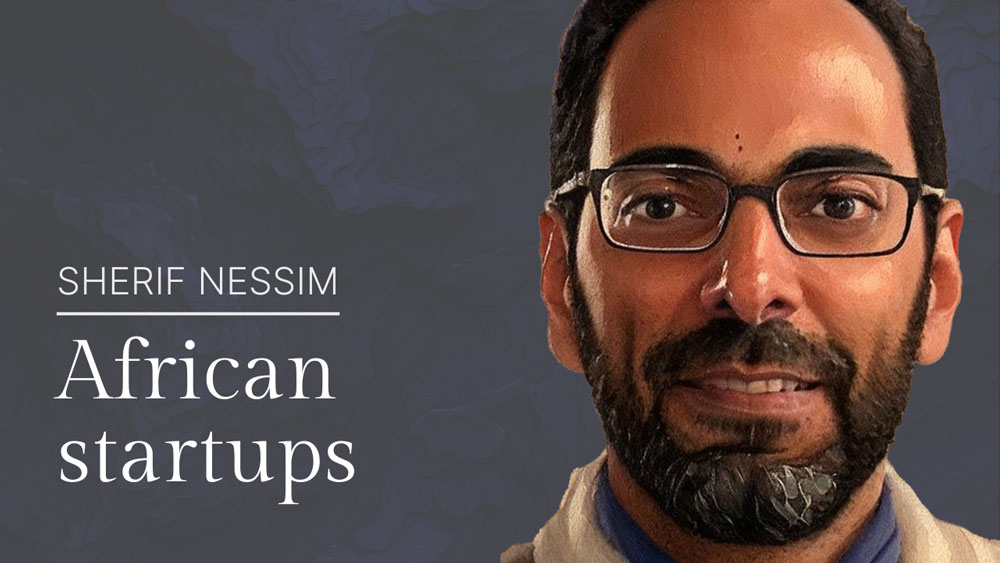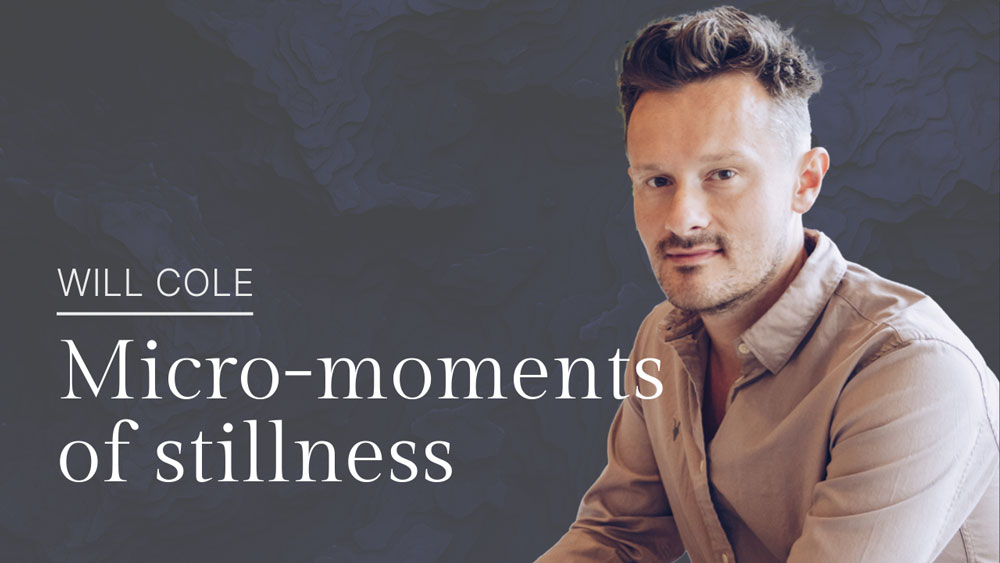Gillian Chepchirchir Moindi
6
min read
Tracking Emerging Markets
Sherif Nessim
Founder | Managing Partner Jedar Capital
Key Takeaways
Born and raised in Egypt, the nexus of Middle Eastern and North African cultures, impacted a profound understanding of cultural differences in Sherif. He understood that even though people came from similar regions, inherent local characteristics warrant distinct approaches.
From his broad experience in VC investments, he has seen first-hand the importance of doing one’s due diligence and maintaining information symmetry and cultural centricity while syndicating.
Sherif calls on investors from around the world to shift their focus to Africa, a cradle of opportunities in the Tech start-up space. Through Jedar Capital, he hopes to unlock more value for the average investor as it grows to become a fully-fledged fund.
Born and raised in Egypt, Sherif's curiosity and passion for technology and building led him on a path to electrical engineering. His career diverted from the “hard-core" technical roles to product sales and operations. He started his career as a presales engineer at Orascom Technology Solutions, a leader in the country’s voice and data enterprise solutions.
In that time, his education and experience afforded him a profound understanding of products and their workings. However, he noticed most users only utilized fractions of what was a product's intended purpose and he became interested in improving their experiences. Thus, as he engaged with customers, he also got a glimpse of the business aspects of operations.
He later moved from the enterprise technology sector to a carrier and telecom business joining Orascom Telecom’s VAS subsidiary ArpuPlus. He played a pivotal role in setting up networking infrastructure and launching different mobile value added services with more than 40 mobile carriers in the Middle East, Africa, and Asian regions (From Morocco in the west all the way to Pakistan and Bangladesh).
Part of his role was finding the right partners to launch different services with mobile carriers. He started to engage with startups, small mobile service providers, and multinationals such as Sony and Warner Music Group—they used Orascom's infrastructure as the launchpad for their 'mobile-value-added-services' that included mobile wallets & digital payment, communication, and content-based services.
Charged with developing the same connection with clients, he fostered a more profound relationship with startups. He made it a personal obligation to transfer the best practices he observed at large multinationals. Thus, as a result, he supported them in their scaling efforts and fostering operational efficiencies.
With over 15 years at ArpuPlus, a prominent mobile digital service developer spanning Africa, Italy, the Middle East, Pakistan, and Bangladesh, Sherif skillfully managed operations, products, and services. Eventually, he ascended to the role of Commercial Director. In this position, Sherif observed that startups in the global digital finance sector often experienced rapid growth in their early years. This trend piqued his interest in the long-term prospects of the startup world, drawing him towards Venture Capital (VC).
In 2020, and after 23 years in telecom and technology, he decided to move from being a technology operator to a technology investor, he moved to New York where he founded Jedar Capital to start realizing his mission of supporting founders and entrepreneurs in emerging markets like Africa and Southeast Asia.
“Emerging Markets are Pretty Much the Same”
First-hand experiences with the cultures of Asia, Africa, and the Middle East led him to observe that, despite their many differences, the emerging markets in these regions share similar challenges when viewed from a problem-solving perspective.
They hardly had traditional infrastructure such as fixed phones at home. Thus, the beliefs around brick-and-mortar models ran deep, especially among the older, more conservative populations which met digital transformation with undue resistance.
But a new wave of change was approaching. Telecommunications technology such as GSM and mobile devices were bridging the gap fast, enabling users access to digital content and services.
"Most of the populations were unbanked so it was easier to convince them to open an account from the convenience of their mobile devices because they never had access to traditional brick and mortar banking."
Demographically, the young population, those below 30 years, were most dominant in the MENA, SSA, and Asian regions. They additionally had access to smart devices, fostering a rapid adoption of most Telco products. Thus, most of the emerging markets have witnessed a transition from a general lack of access to traditional infrastructure to better receptiveness of modern technological offerings.
The changing digital landscape and lack of existing infrastructure spirited new openings in digital communication sectors. So, FinTechs that did their research and rushed into the markets found untouched billion-dollar industries.
"M‑Pesa has become almost ubiquitous in some of its current markets. Penetration rates are as high as 90 percent of the GSM network [Global System for Mobile Communications] in countries such as Kenya."(Cooke et al., 2022)
Among the successful fintech businesses is M-Pesa, a venture launched in the Kenyan market to offer payment and banking solutions. It grew to become Sub-Saharan Africa's leading "mobile money" platform, serving over 50 million users.
Navigating Venture Capital
"VC is a private-equity funding model for startups and early-stage emerging companies if they have growth potential. VC funds help acquire ownership stakes to finance operations and R&D and investors could also offer technical assistance, their expertise, and contacts to accelerate growth (Baldridge, 2023)."
Learning about startups and venture capital made the idea of investing more palatable. He mapped out the potential disruptors that could transform technology-driven sectors. But from the long list he compiled, he was torn between multiple industries. Thus, based on his limited experience, it only felt logical to embark on doing his due diligence before making a high-risk investment decision.
"I had long been a technology operator, I wanted to be a technology investor."
The knowledge Sherif accumulated piqued his interest in business. Having spent decades in technology development, he was always drawn to the idea of "technology investment." Using the industry approach he honed in VC, he identified numerous opportunities within emerging tech industries across Africa, the Middle East, and Pakistan.
Intent on broadening his understanding beyond what was presented on paper, Sherif aimed to expand his network across these emerging markets. Leveraging the extensive connections he had made at Orascom, he pinpointed the key players in the startup scene.
When his tenure at Orascom came to an end in 2020, the pivot to full-time investor felt long overdue. He understood the fundamentals of VC funds, but he lacked the confidence of an adept capitalist. Therefore, in 2015, he joined A15, a Cairo-based tech fund, as an LP rather than rushing to a solo venture.
What is Syndicating?
"A syndicate is a group that shares the costs and rewards of investing in startups, on a deal-to-deal basis and according to their contribution (Nanda & Rhodes‐Kropf, 2018)."
With his acumen, learning the process of syndicating bolstered the confidence he had to start his company. He was sold on the idea of rallying international support behind his company’s ventures. Thus, in 2021, after he moved to New York, he took the leap of faith and founded Jedar Capital, fulfilling his ambition of becoming a "full-time tech investor." Despite that, Sherif also joined the GoingVC (GVC) program, an investment apprentice program based in San Francisco that had a similar model, and became an alumnus 5 months later.
Being a lifelong learner, he noticed that the average investor had neither the time, expertise nor resources to do their due diligence. But Jedar Capital was an opportunity to channel his vast network and affinity for gathering data into providing customers with valuable insights. Thus, he felt he could inform them symmetrically without putting them through the hassle of constantly scanning the horizon for emerging companies and sectors.
Thanks to the invaluable insights and connections provided by Jedar Capital during the syndication period, Sherif's confidence in the fund grew. This led to securing enough private contributions for the firm to broaden its portfolio across various industries and regions. As a result, the company now has investments in over 18 startups spanning Egypt, Kenya, Nigeria, Côte d'Ivoire, South Africa, Pakistan, and the broader MENA regions.
Conclusion
From engineering to business and sales, Sherif's journey has honed his vision of the vast potential within emerging markets, particularly in Africa. With the introduction of the Continental Free Trade Agreements, sectors like Trade and Agriculture are poised for significant growth. Yet, Sherif recognizes that sectoral expansion often triggers cascading needs, such as the development of suitable financial and communication infrastructures. To him, as a venture capitalist, the evolving digital financial services and trade infrastructure in Africa represents a promising frontier.
However, as they navigate these opportunities, VCs must be attuned to regional nuances, ensuring cultural sensitivity while expanding their reach. For those contemplating their next investment move, Jedar Capital offers connections to founders in burgeoning sectors. Additionally, Sherif Nessim's LinkedIn provides a wealth of insights, reflecting his extensive experience in investment and operations.
References
Baldridge, R. (2023, August 2). Understanding Venture Capital. Forbes. https://www.forbes.com/advisor/investing/venture-capital/
Cooke, M., D’Silva, V., & Gathinji, C. (2022, June 29). Driven by purpose: 15 years of M‑PESA’s
evolution. McKinsey & Company. https://www.mckinsey.com/industries/financial-services/our-insights/driven-by-purpose-15-years-of-m-pesas-evolution
Nanda, R., & Rhodes‐Kropf, M. (2018, October). Coordination frictions in venture capital syndicates. Harvard Business School. https://www.hbs.edu/ris/Publication%20Files/17-089_88478c15-6d30-49bb-902e-d65bd6643ba1.pdf



